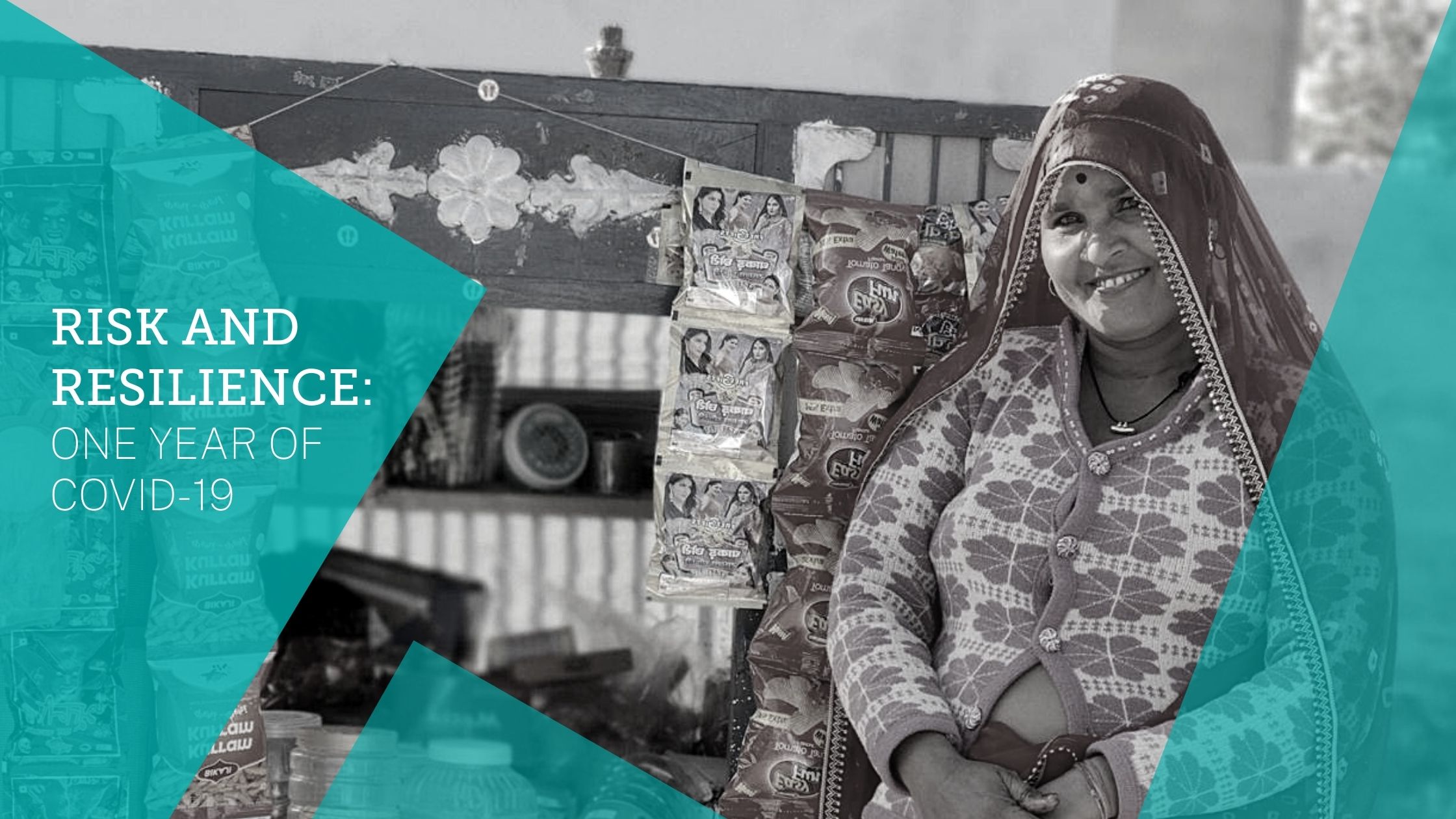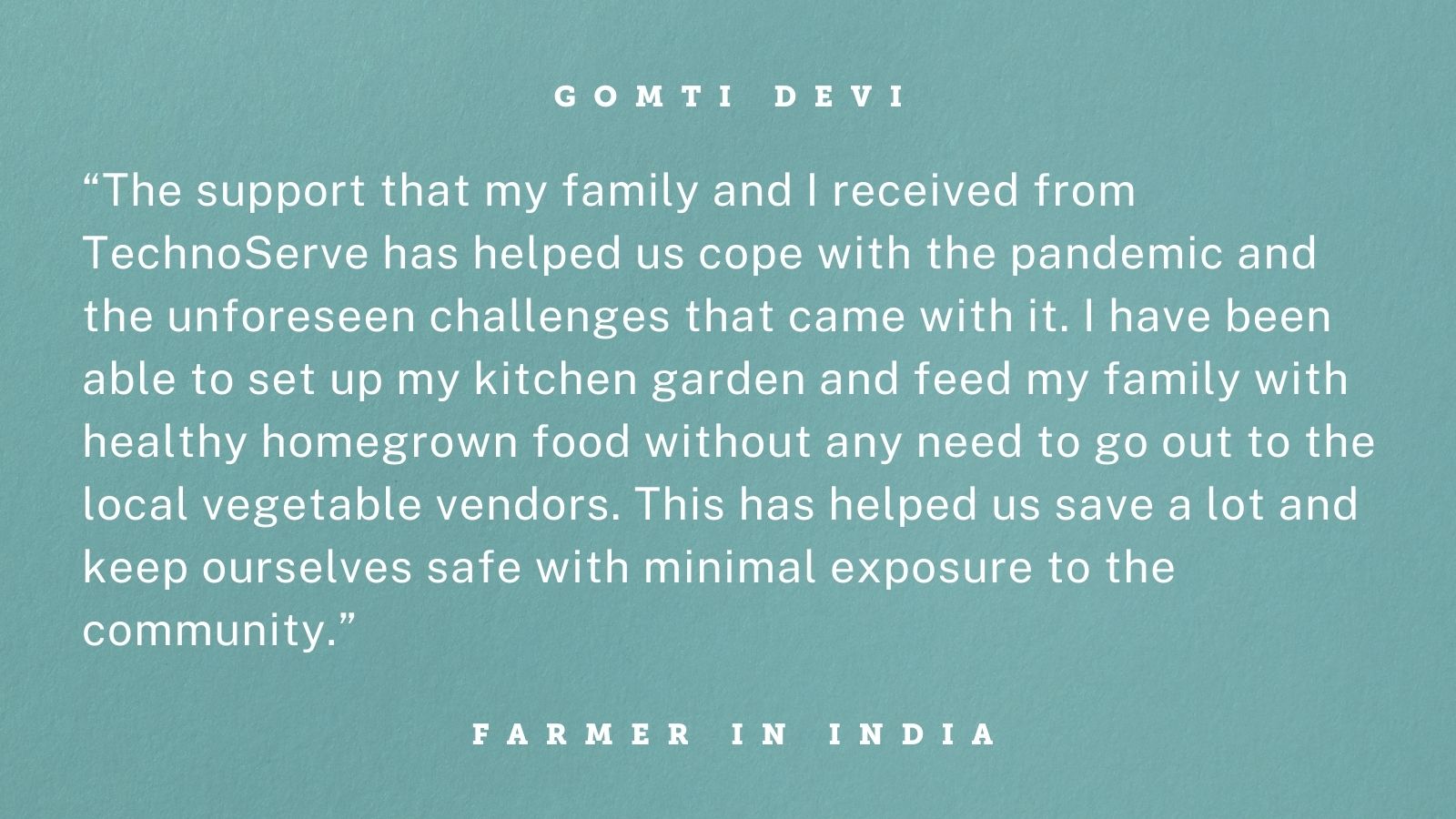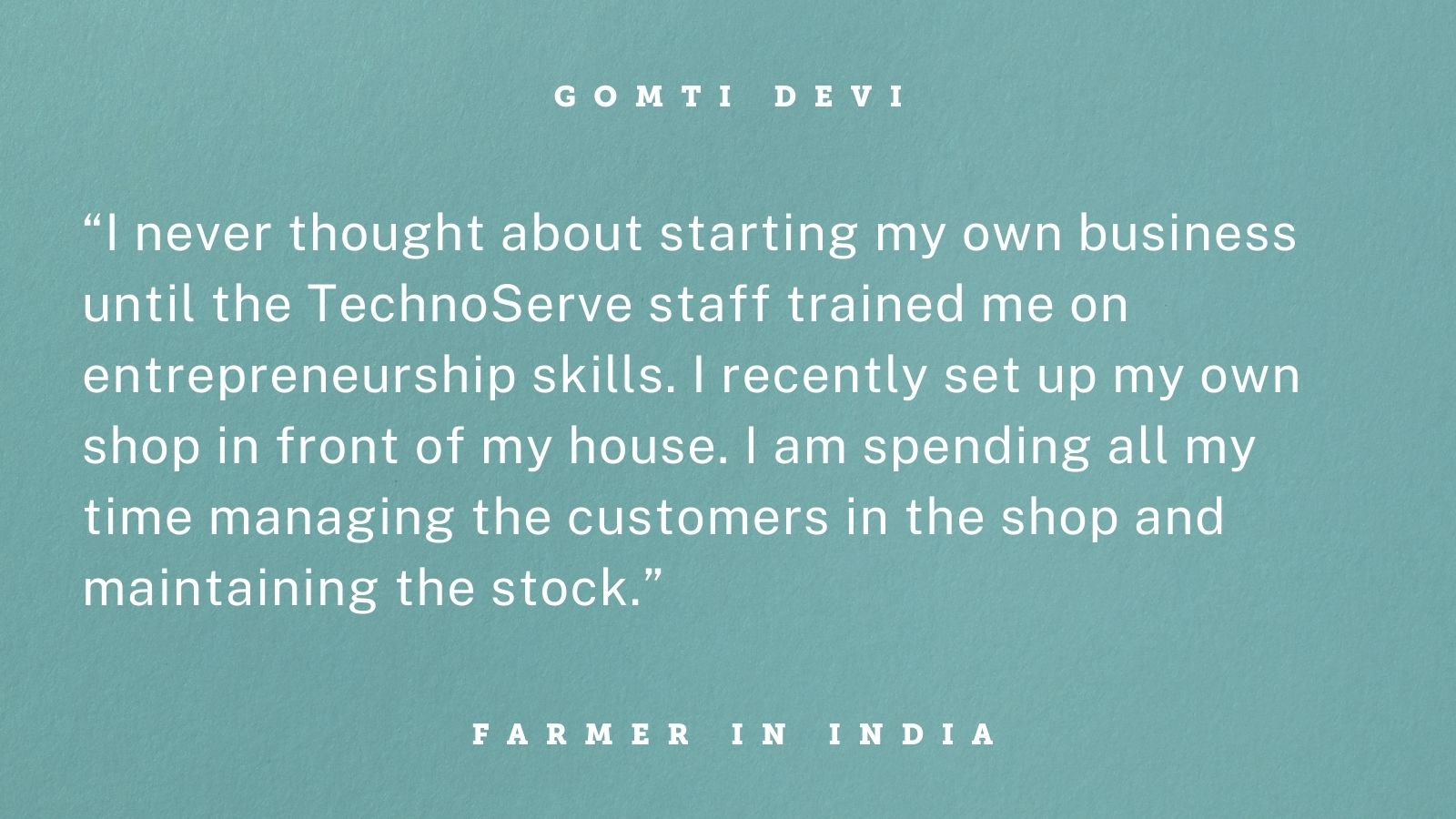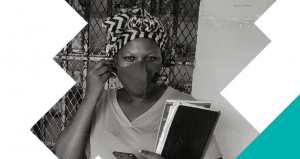One Year of COVID-19: Gomti Devi, Farmer in India
In this series, we check back with TechnoServe program participants previously featured on our blog, documenting how their lives have changed and progressed. Gomti Devi is a smallholder guar farmer in Bikaner, Rajasthan, India, whose gender-inclusive training from TechnoServe helped her withstand the COVID-19 crisis. Having learned how to sew and to grow food, Gomti saved money, reduced her risks, and gave back to protect the wider community. Find out how she is doing now, almost a year later.

Gender-Inclusive Training Helps Farmers Weather the COVID-19 Crisis
When cases of COVID-19 peaked in India last September, the country was reporting almost 100,000 new cases every day. In the months since, cases have declined significantly, but many people still feel the pandemic’s economic effects on their farms, businesses, and livelihoods.
Such is the case for Gomti Devi, a smallholder guar farmer in northwest India. Guar is a highly versatile, drought-resistant legume that grows in arid areas. When we first featured Gomti in April 2020, she was worried about managing her farm and providing for her family, given the strict lockdown and restrictions on movement.

After the lockdown was lifted, challenges remained. Diesel prices skyrocketed, forcing Gomti and many other farmers in her community to absorb a 20% increase in the cost of renting farm equipment. But despite the uncertainty surrounding the future of her guar harvest, one thing gave her a sense of security: her kitchen garden.
Kitchen Gardens as Part of a Gender-Inclusive Approach
In 2018, Gomti joined the Sustainable Guar Initiative, a partnership between TechnoServe, Solvay, L’Oréal, Henkel, and HiChem. The program works to support guar-farming households through a gender-inclusive approach. Women farmers learn how to cultivate “kitchen gardens” — growing produce in their own backyards — helping them gain economic independence and contribute to household income and family nutrition.
Kitchen gardens have several benefits, including:
- Boosting household access to healthy, nutritious food
- Reducing the need to travel to markets
- Helping farming families save money
When Gomti first established a kitchen garden in her backyard, she relished the vegetables that were suddenly regularly accessible to her and her family throughout the year. However, it wasn’t until the nationwide lockdown that Gomti truly realized the benefits of kitchen gardening. The garden has allowed her to save money and reduce her risk of being infected with the virus.

Giving Back to the Community
For Gomti and her family, the pandemic has created new challenges, but it has also provided opportunities. With the extra money and time she saves by not going to the market, she decided to give back to her community by sewing masks and giving them away.
The pandemic has changed our lives a lot. I make sure that my family and neighbors wash our hands regularly, wear masks, and wash [our] clothes and dry them in the sun. I distributed 40 masks to the national toll tax booth and 40 masks to the nearby women and girls in my village. When I started stitching masks for my community, there was no supply of elastic in the village. I had to scrape together material from old used clothes while making the masks.”
–– Gomti Devi
New Business Opportunities
In addition to sewing and giving away masks, Gomti also decided to start her own business in recent months, selling daily household essentials like toiletries, snacks, and stationery. Part of TechnoServe’s gender-inclusive training approach included teaching women like Gomti important entrepreneurial skills.

I did not know that so many rural women in our country are already running shops. This motivated me to start my own business, and the training helped me understand the basics, like how to manage a customer, how to make profits, and how to do recordkeeping. This training has helped me scale my shop from zero to what it is today in the last four or five months.”
— Gomti Devi
Although there will undoubtedly be more challenges ahead, Gomti is optimistic about the future of her farm, her business, and her family.
I have received a very good response from the village on my new shop, and I am optimistic about its growth in the future. My family is also prepared for next year’s guar cultivation, and we will be trying to cover all the losses we have incurred during the pandemic. We are hoping that the country recovers from the pandemic and the restrictions are relieved a bit. I am hopeful for the shop that I am currently investing all my efforts in. I wish to expand the shop and earn a good amount of income from it.”
— Gomti Devi
Read More Stories of Risk & Resilience During COVID-19:
One Year of COVID-19: Juliana Mário, Mozambican Entrepreneur





